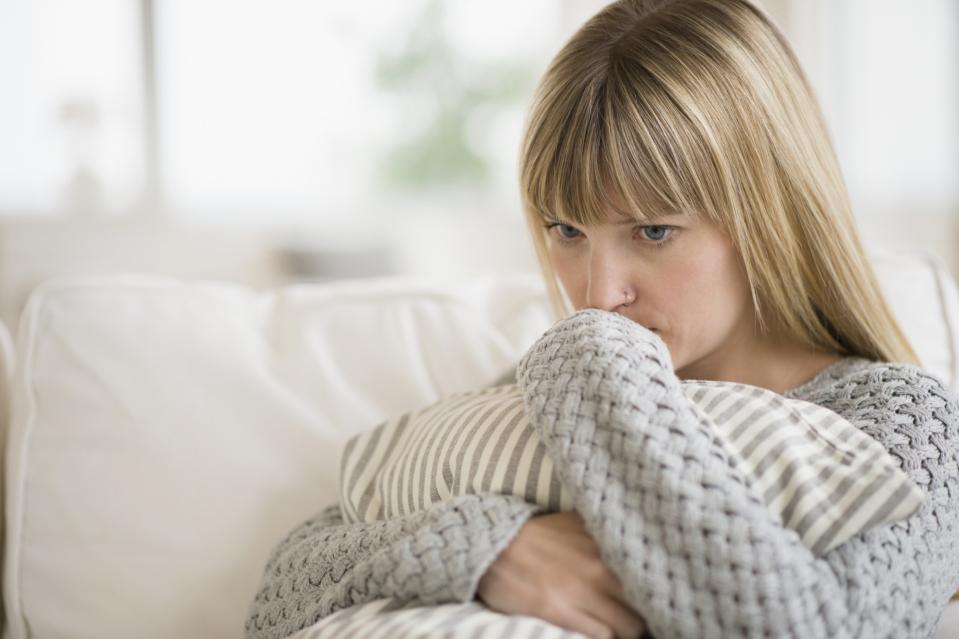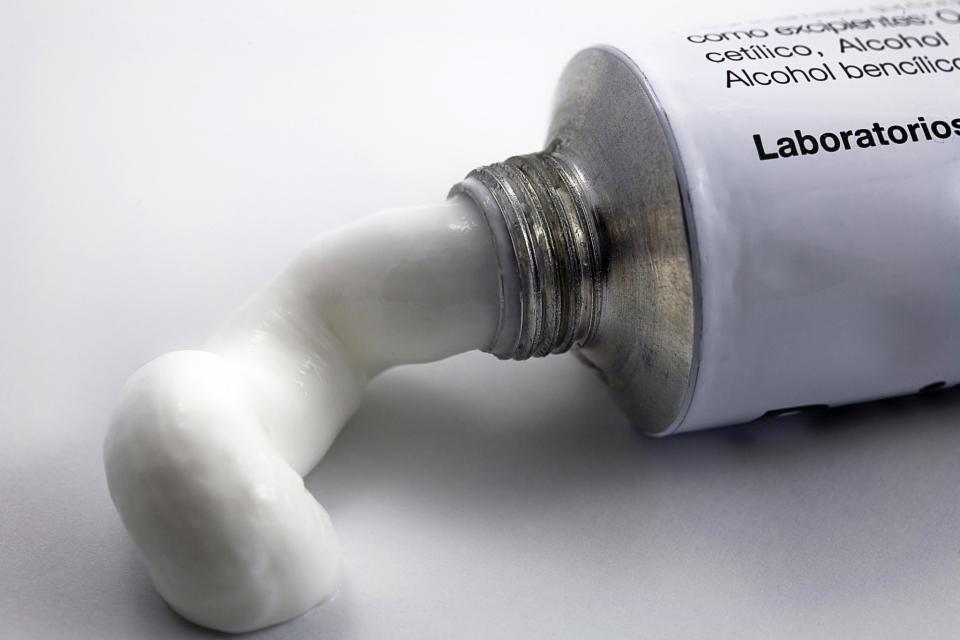Sex is painful for almost one in 10 women, so why aren't we talking about it more?

According to a new survey, almost one in 10 British women finds sex painful.
Speaking to nearly 7,000 sexually active women between the ages of 16 and 74, the study in the British Journal of Obstetrics and Gynaecology found it common among women to experience pain during or after sex.
And that goes for women of all ages too; while women between 50 and 70 were most likely to, this age group was followed by women aged 16-24.
Almost a tenth is a huge number. And pain during sex is no small matter; unless tirelessly trying for a baby, it’s meant to be something purely for enjoyment, and certainly not something to have to endure.

So why are women putting up with it?
Sex can be painful for a multitude of reasons. When it comes to vaginal pain, for example, obvious physical causes could be a fungal or sexually transmitted infection, or vaginismus – when the muscles in or around your vagina shut tightly and involuntarily, making sex painful or flat-out impossible to achieve.

But the study didn’t end up focusing on that. Instead, they found painful sex to be strongly associated with psychological problems such as anxiety about sex, lacking enjoyment in sex, vaginal dryness and relationship factors such as not sharing the same level of interest in sex as their partner.
Which, all in all, is rather depressing. The idea that women all over Britain are feeling anxious or perhaps even dreading sex, but still having it and putting up with the pain, isn’t good at all.
Yet we’re doing it.

If we feel anxious about or aren’t enjoying sex, we should feel able to talk about it with the very person we’re having sex with, or a GP if we think it’s something more serious.
Stereotypically, older women are meant to be the ones embarrassed to talk about sex and their sexual health. But a reluctance to discuss the topic is far from age exclusive; a study by Ovarian Cancer Action last year found that a whopping two thirds (66%) of women aged 18-24 said they’d be too embarrassed to say the word “vagina” in front of a GP.
And if young women are too embarrassed to utter an anatomical word to a health professional, what does this mean for communication in the bedroom?
Dr Kirstin Mitchell, the lead researcher behind the original pain survey, told the BBC that one reason young women put up with painful sex “might be that they are starting out in their sexual lives and they are going along with things that their partner wants but they are not particularly aroused by”.

So perhaps young women are going along with whatever their partners want due to awkwardness or under confidence, and remaining thoroughly non-turned on while doing it. But does that really stop happening the moment we turn 25?
Thinking optimistically, maybe the less prevalent age group in the study is those aged 25-49 because women become more confident in discussing sexual enjoyment with their partners after their early twenties – at least before the menopause comes along with its signature symptoms: a dip in arousal and vaginal dryness.
Either way, despite fear of embarrassment, women need to feel they can discuss every little detail of sex with their partners and what they want out of it so that they can feel anxiety free and – wait for it – relaxed during sex. Because isn’t that what it’s all about?

Equally, partners must be attentive to women’s needs too, whether that’s taking things more slowly or breaking away from their usual sex itinerary. (Hint: it could even be fun.)
After this, there are a plethora of lubricants, creams, dilators and talking therapies which could help – along with matter-of-fact discussions to be had with your GP if you think it might be something more serious.
Considering how many women this affects, bringing it up with a close female friend or family member might reveal that you’re not the only one too.
And when it comes to the anxiety side of things, there are simple ways to learn to be more comfortable with your body whether that’s by reading articles, books, taking up hobbies that take you out of your comfort zone, or even signing up to a sexual pleasure research site.

Whatever you choose, it’s about time women took the wheel.
How do you boost your confidence during sex? Tweet us at @YahooStyleUK.
How to learn to love your body in 10 steps
What is OMGYES.com? The online training programme demystifying the female orgasm


